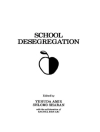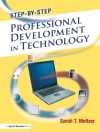The work of Elliot R. Wolfson has profoundly influenced the fields of Jewish studies as well as philosophy and religion more broadly. His radically new approaches have created pioneering ways of analyzing texts and thinking about religion through the lens of gender, sexuality, and feminist theory. The contributors to New Paths in Jewish and Religious Studies: Essays in Honor of Professor Elliot R. Wolfson, many of whom are internationally renowned scholars, hearken from diverse fields. Each has learned from and collaborated with Wolfson as student or colleague, and each has expanded the new scholarly directions initiated by Wolfson’s groundbreaking work. Wolfson’s scholarship gives us innovative ways to think about Judaism and a fresh understanding of religion. Not only a scholar, Wolfson is one of the most important Jewish thinkers of our day. Chapters are grouped according to the categories of religion, Jewish thought and philosophy, and a focused section on Kabbalah, Wolfson’s primary specialization. The volume concludes with a bibliography of Wolfson’s published work and a selection of his poetry.
विषयसूची
Acknowledgments
Introduction, by Glenn Dynner, Susannah Heschel, and Shaul Magid
For Elliot Wolfson, by Haviva Pedaya
PART I. STUDIES ON RELIGION
Elliot Wolfson’s Philosophical Theology (A Hypothesis), by Martin Kavka
“What We Are to Remember in the Future”: Thoughts on Elliot Wolfson’s Book on Dreams, by Elisabeth Weber
Demonology Beyond Dualisms, by Annette Yoshiko Reed
The History of Our Present Disaster: Apocalyptic Time, Buber, and 4 Ezra, by Dustin Atlas
Bad Faith; or, Why the Jews Aren’t a Religion, by Daniel Boyarin
Divine Economy: Notes on the Religious Apparatus, by Hent de Vries
In the Name of Time: Marcel Proust, the Zohar, and Elliot Wolfson’s Notion of Timeswerve, by Clémence Boulouque
The Timeswerve: Reading Elliot Wolfson in a Block Universe, by Jeffrey Kripal
See Under: Erich Neumann’s Typologies of the Great Mother and the Kabbalistic Lexical Tradition, by Pinchas Giller
The Being of Institutional Logics? Notes for a Religious Institutionalism Without God, by Roger Friedland
PART II. STUDIES ON KABBALAH
The Tree and the Ministering Angels in
Sefer ha-Bahir, by Ronit Meroz
Gender and Vision in
Otzar Hayyim/Heikhal ha-Brakha by R. Itzhak Eizik Safrin of Komarno, by Jonathan Garb
Love Letters: The Literal Foundations of Love in the Zohar on the Song of Songs, by Joel Hecker
A King Without the Matronita Is Not Called “King”: Between Queen Consort and Divine Consort in Thirteenth Century Kabbalah, by Sharon Koren
Androcentric Readings of Kabbalistic Texts by Kabbalists: Delimiting the Polysemia of Kabbalistic Writings, by Daniel Abrams
Secrecy, Kabbalah, and Maimonideanism in the Thirteenth Century, by Jonathan Dauber
On Kabbalah and Nature: Language, Being, and Poetic Thinking, by Hava Tirosh-Samuelson
Fear and the Feminine: Kabbalistic Theurgy of the Negative Commandments, by Leore Sachs-Shmueli
PART III. STUDIES ON JEWISH THOUGHT AND PHILOSOPHY
Mysticism and the Ontology of Language in the Poetry of Chaim Nachman Bialik, by Michael Fishbane
Universal Singularities: Elliot R. Wolfson on Jewish Ethnocentrism, by Hartley Lachter
Prophetic Vision and Imagination: Reading Maimonides with Wolfson and Wyschogrod, by Andrea Dara Cooper
Philosophy and Dissimulation in Elijah of Vilna’s Writings and Legacy Eliyahu Stern
Idols in the Sanctuary: Elliot Wolfson and Modern Jewish Thought, by Robert Erlewine
To Infinity, Not Beyond: Spinoza’s Ontology of the Not One, by Gilah Kletenik
A Trace of Levinas: Wolfson’s Phenomenology of Vulnerable Learning, by Sarah Pessin
The Mirror Through Which One Sees the Other: Wolfson, Heidegger, Kabbalah, and the Making of a Primary Jewish Text, by Shaul Magid
A Stolperstein for Blumenberg?, by Steven M. Wasserstrom
Home(s) in Future Anteriors; or, Paths of Poiesis Fourfolded Forward, by Almut Sh. Bruckstein
When the Particular Is Not Indexical of the Universal: Some Thoughts on the Study of Judaism in Light of Elliot R. Wolfson’s Work, by Aaron W. Hughes
Religion and Technology:
The Star of Redemption in the Language of New Media, by Zachary Braiterman
PART IV. WORKS BY ELLIOT R. WOLFSON
Poems
Publications
Contributors
Index
लेखक के बारे में
Shaul Magid is a professor of Jewish studies at Dartmouth College, Senior Fellow at the Center for the Study of World Religion at Harvard, and Kogod Senior Research Fellow at the Shalom Hartman Institute of North America. He has rabbinical ordination from Jerusalem in 1984. Among other books, he is the author of From Metaphysics to Midrash; American Post-Judaism: Identity and Renewal in a Postethnic Society; and Hasidism Incarnate: Hasidism, Christianity, and the Construction of Modern Judaism. He is the editor of the column Teiku for the Ayin Journal and writes regularly for +972 and Religion Dispatches. He is an elected member of the American Academy for Jewish Research and the American Society for the Study of Religion.












